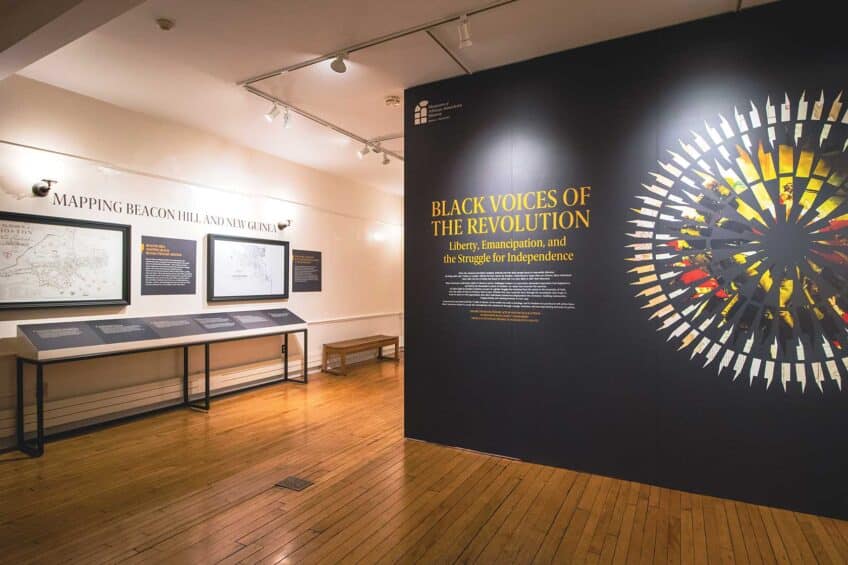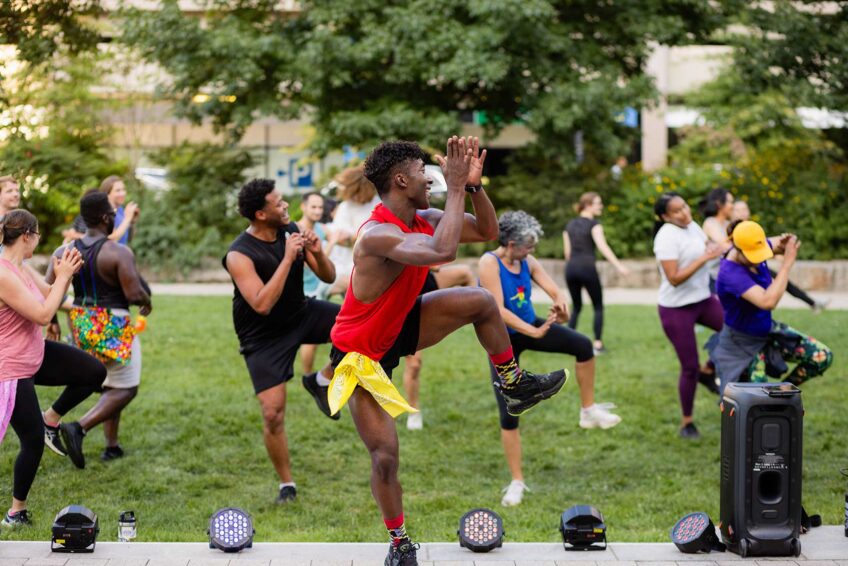Local designer champions traditional head wrapping
Through workshops she connects community to cultural heritage
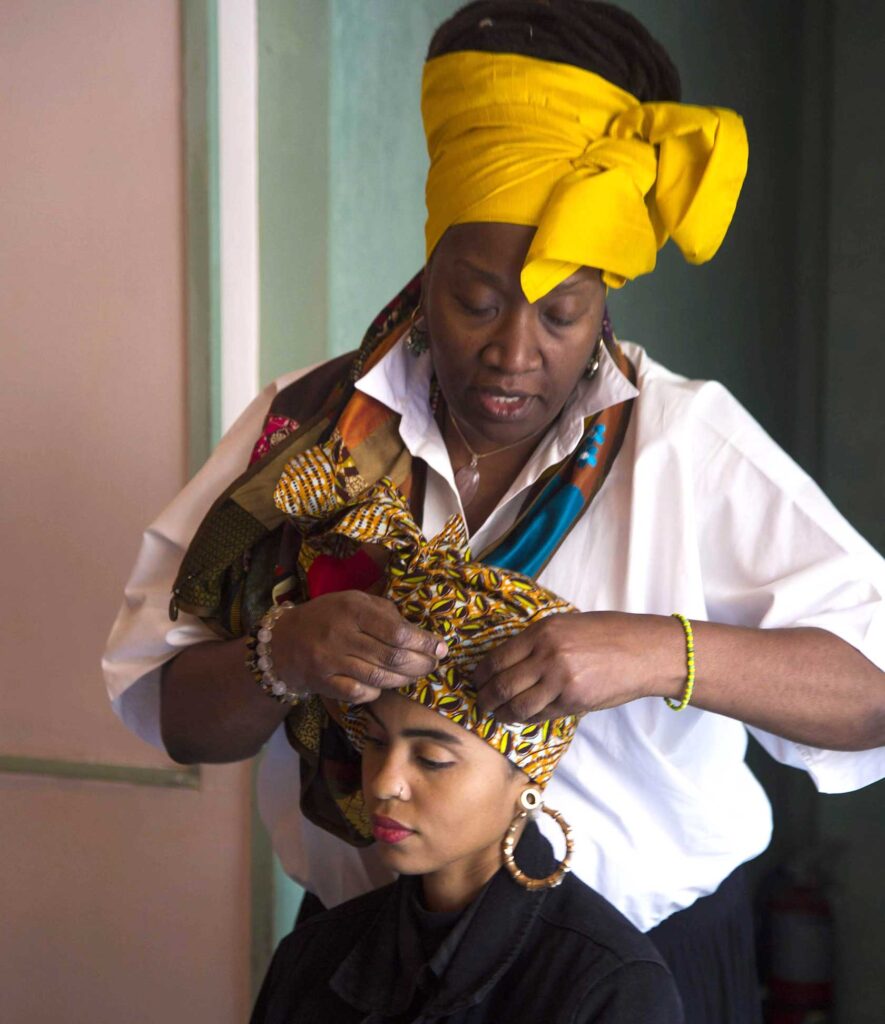
Boston-based designer Faith (Imani) McFarlane has been designing luxury head wraps since 2006. The vibrant cotton and silk wraps range from simple bands to elegant, couture creations.
The Tafari Wraps brand was born from a workplace challenge. After years of working in corporate environments where her head wraps garnered racist comments, McFarlane decided to pivot to focus on fashion and education related to cultural headwear.
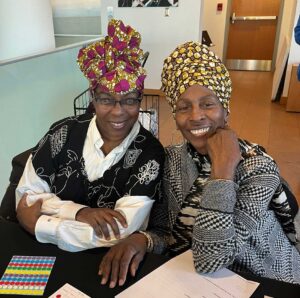
Participants in a recent head wrapping workshop show off their colorful wraps. PHOTO: COURTESY TAFARI WRAPS
“The negative experience drove me to create a program, initially about the art and fashion of African head wrapping,” said McFarlane. “I started educating people on head wraps, the history of head wraps and why it’s being worn in different countries by different cultural groups.”
Since launching the business, McFarlane has hosted workshops at the Codman Square Health Center, the Dorchester YMCA, Massachusetts College of Art and Design, Boston Public Library locations and many more institutions. She also does private events and sells her custom head wrap designs.
McFarlane really began to hit her stride by volunteering for the American Cancer Society’s Look Good Feel Better program at Boston Medical Center. Through the program, she hosts workshops for cancer patients, teaching them how to create beautiful head wraps that are decorative, cover up hair loss from treatments and regulate temperature through natural fibers. The program offers a confidence-boosting fashion opportunity for patients that also keeps them comfortable.
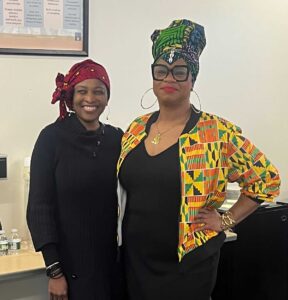
Participants in a recent head wrapping workshop show off their colorful wraps. PHOTO: COURTESY TAFARI WRAPS
Recently, McFarlane concluded a series of free workshops at Grove Hall and Mattapan Boston Public Library branches, showing members of the community tricks for unique twists and ties in head wrapping. A master at the art, McFarlane can create an ornate covering with just a few flicks of the wrist.
“For the children as the African diaspora, it connects us to our cultural heritage, to the motherland,” said McFarlane. “It’s important as well to break down barriers and negative stigmas about head wrapping.”
During the workshops, educator Delmeshia Haynes, who works closely with McFarlane, presents a PowerPoint on the many cultural ties to head wrapping and the history of the art. Then participants can get involved trying their own wrap styles. The event wraps up with a bingo game using information from the presentation.
But the gatherings aren’t just about fashion or winning bingo prizes. They’re about community.
“We create a non-judgmental space in the Boston Public Library where women will come in and they will express what they are going through, be they have lupus, are experiencing hair loss from chemo or they might be having a bad day,” said McFarlane. “They feel the warmth, they feel the care and they feel that there’s a space for them to heal.”





